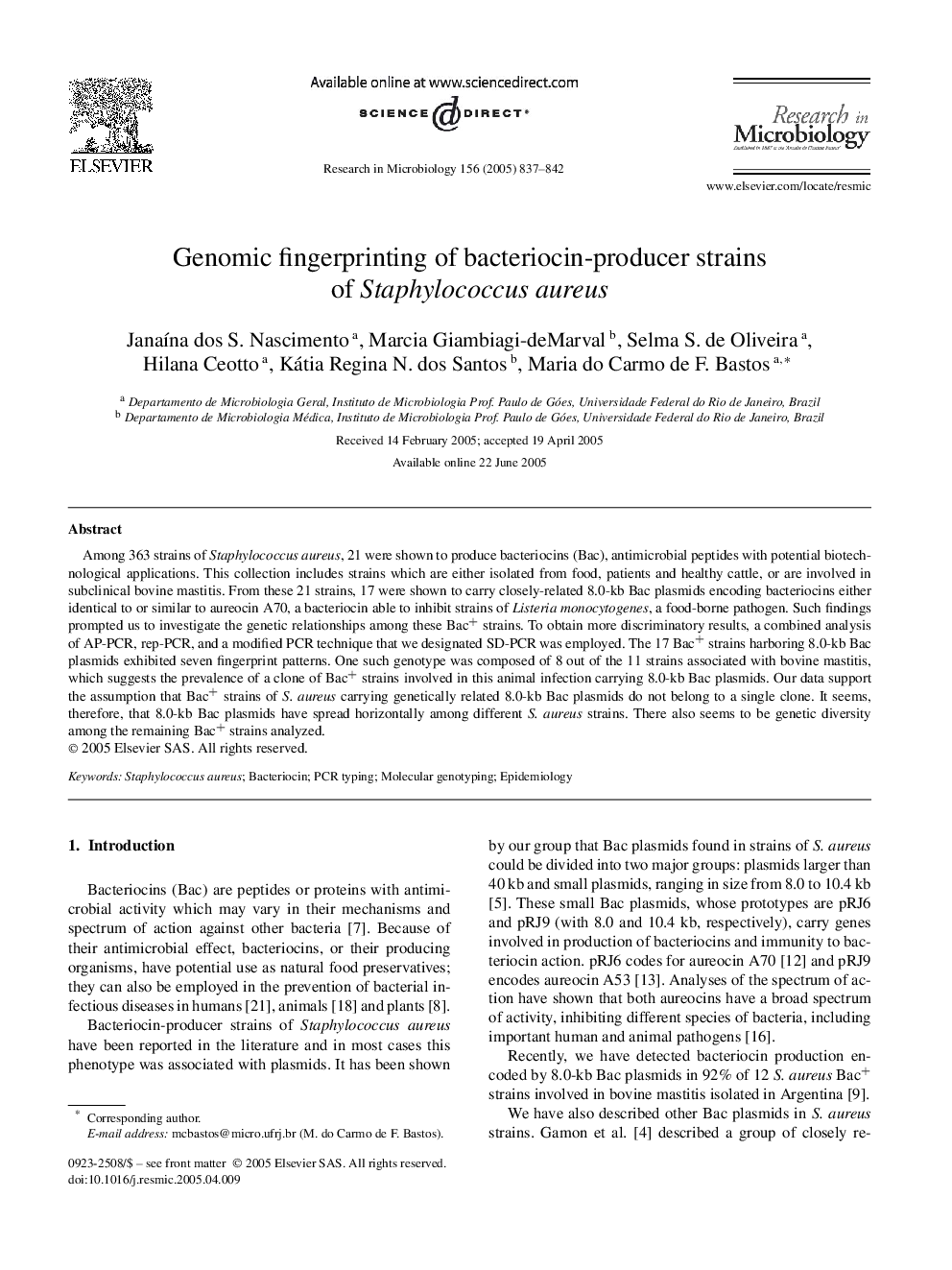| Article ID | Journal | Published Year | Pages | File Type |
|---|---|---|---|---|
| 9440088 | Research in Microbiology | 2005 | 6 Pages |
Abstract
Among 363 strains of Staphylococcus aureus, 21 were shown to produce bacteriocins (Bac), antimicrobial peptides with potential biotechnological applications. This collection includes strains which are either isolated from food, patients and healthy cattle, or are involved in subclinical bovine mastitis. From these 21 strains, 17 were shown to carry closely-related 8.0-kb Bac plasmids encoding bacteriocins either identical to or similar to aureocin A70, a bacteriocin able to inhibit strains of Listeria monocytogenes, a food-borne pathogen. Such findings prompted us to investigate the genetic relationships among these Bac+ strains. To obtain more discriminatory results, a combined analysis of AP-PCR, rep-PCR, and a modified PCR technique that we designated SD-PCR was employed. The 17 Bac+ strains harboring 8.0-kb Bac plasmids exhibited seven fingerprint patterns. One such genotype was composed of 8 out of the 11 strains associated with bovine mastitis, which suggests the prevalence of a clone of Bac+ strains involved in this animal infection carrying 8.0-kb Bac plasmids. Our data support the assumption that Bac+ strains of S. aureus carrying genetically related 8.0-kb Bac plasmids do not belong to a single clone. It seems, therefore, that 8.0-kb Bac plasmids have spread horizontally among different S. aureus strains. There also seems to be genetic diversity among the remaining Bac+ strains analyzed.
Related Topics
Life Sciences
Immunology and Microbiology
Applied Microbiology and Biotechnology
Authors
JanaÃna dos S. Nascimento, Marcia Giambiagi-deMarval, Selma S. de Oliveira, Hilana Ceotto, Kátia Regina N. dos Santos, Maria do Carmo de F. Bastos,
